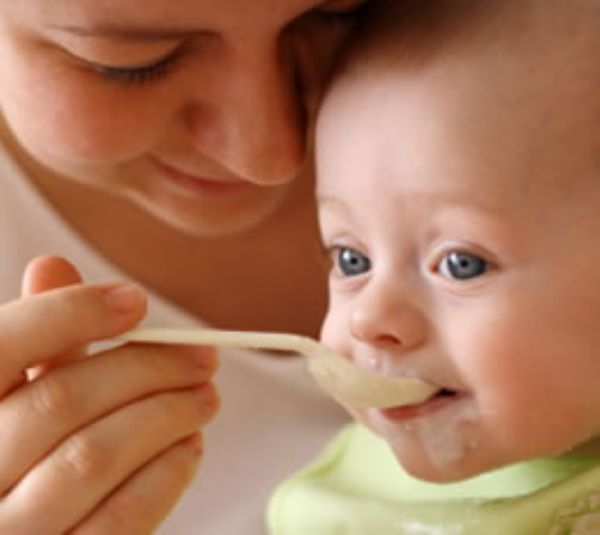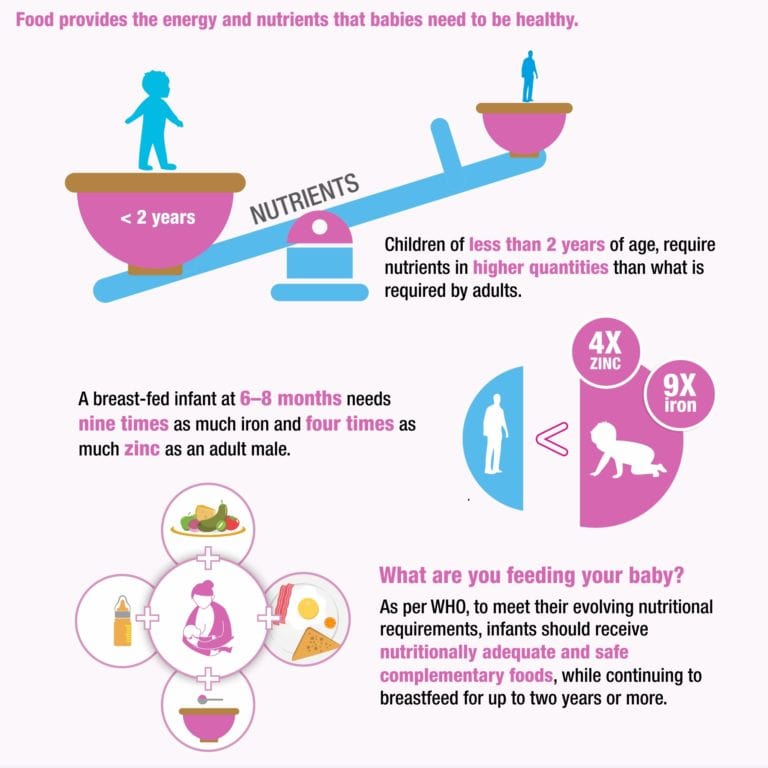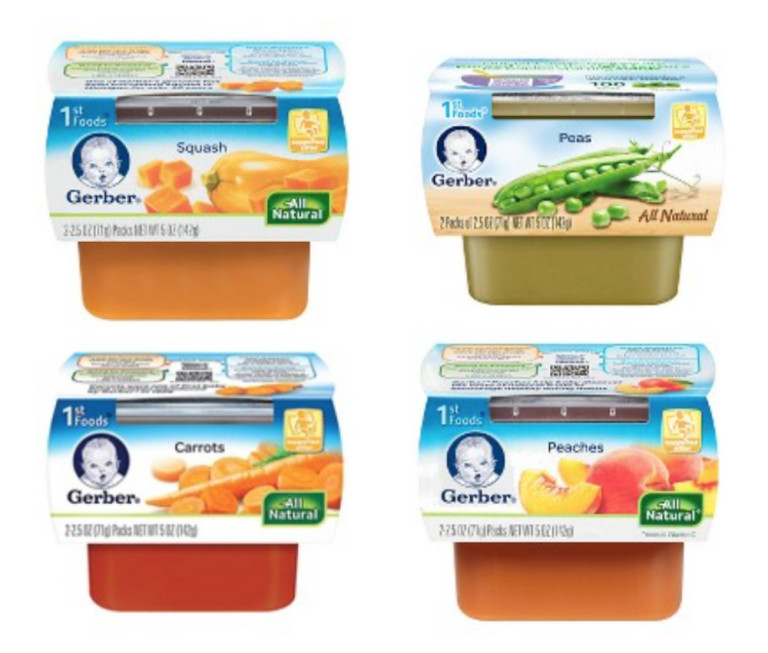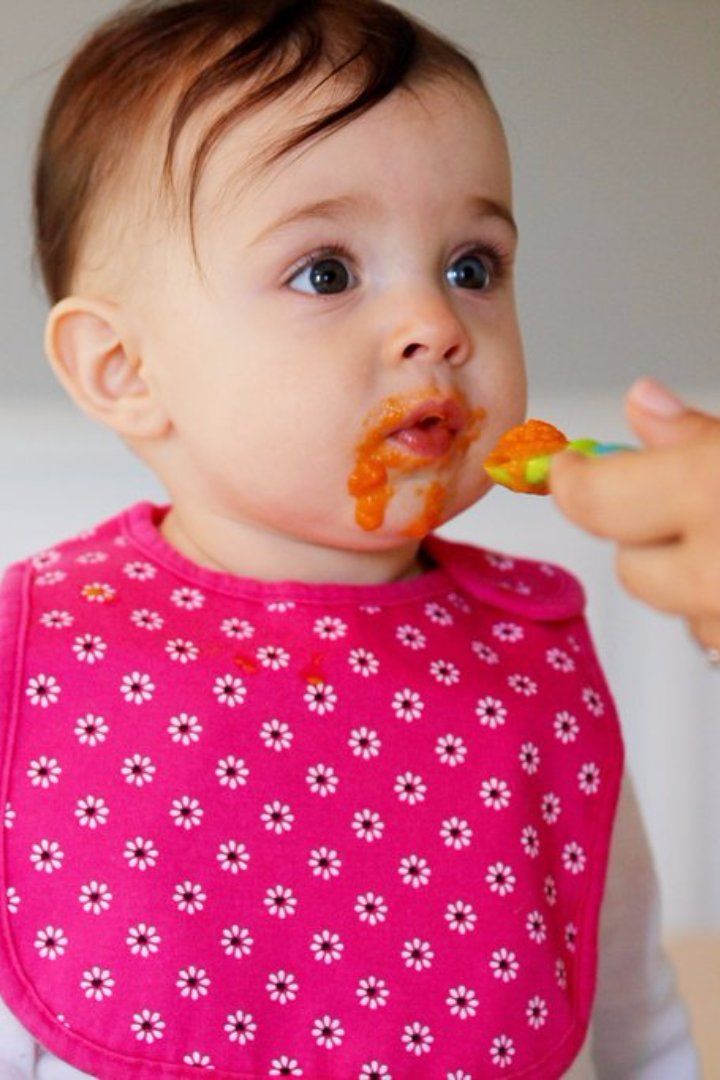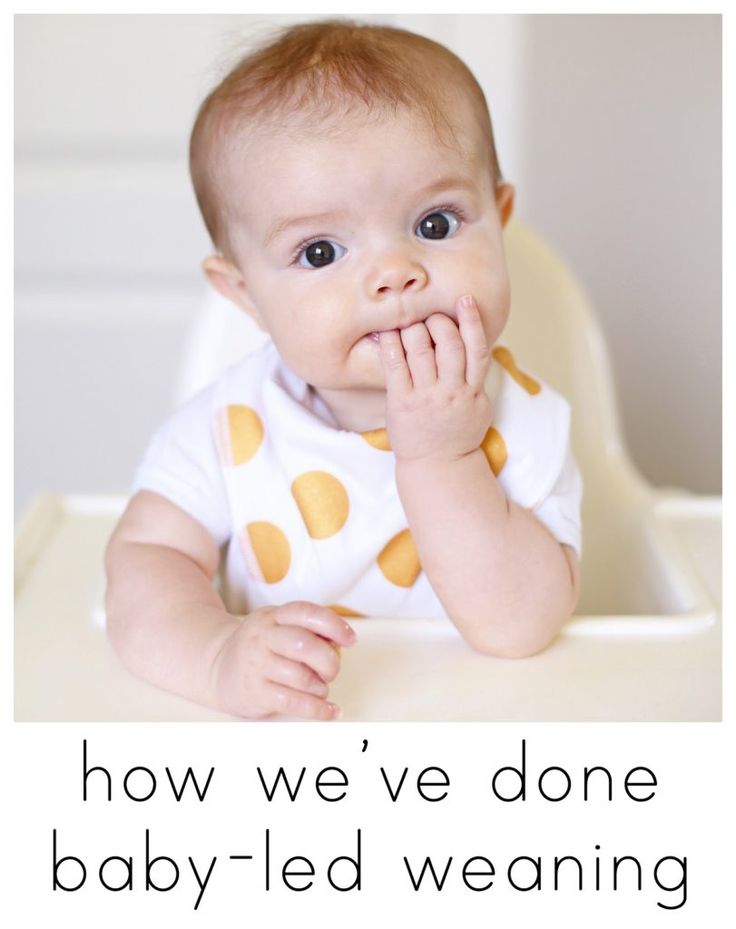Baby cries in pain when feeding
Why Is Baby Crying After Feeding?
The question of “why does my baby cry after feeding” is a question that can typically drive mothers and parents crazy.
Oftentimes, it can be hard to know why your baby is crying after feedings. Not knowing how to identify the problem and not having a solution can have a significant effect on the physical and mental health of both your baby and the entire family. This can include increased stress, lower quality sleep, and the physical health of your baby. However, if you identify the cause and solve the problem, you will be able to significantly improve the parenting and breastfeeding experience for you and your child.
That’s why we decided to write an article on this topic – Why does my baby cry after feeding? This is an important topic and should be known by all mothers so that you can get the best results when feeding your baby.
This article will cover the following topics:
- Why Babies Cry After Feeding
- Should You Breastfeed Every Time Your Baby Cries?
- How Do I Comfort A Newborn?
Without further ado, let’s get into it.
Why Your Baby Cries After Feeding
Acid Reflux
The first major reason babies cry after feeding is known as acid reflux. Acid reflux happens when the content in the stomach gets pushed back into the esophagus.
It’s estimated that more than half of infants experience acid reflux at some point. The condition usually peaks at 4 months and goes away on its own between 12 and 18 months of age.
Some symptoms of acid reflux include:
- Spitting up and/or Vomiting
- Refusal to eat and difficulty eating or swallowing
- Irritability during feeding
- Wet burp / hiccups
- Failure to gain weight
- Abnormal arching
- Frequent coughing
- Gagging or choking
- Chest pain or heartburn
- Disturbed sleep
If acid reflux symptoms persist past 24 months, it may be a sign of gastroesophageal reflux disease (GERD) when combined with weight gain.
Food Sensitivity / Allergies
In addition to acid reflux, some breastfed babies may be allergic to certain food particles that their mothers are eating. According to the Academy of Breastfeeding Medicine, some of the most common foods that lead to food sensitivities and allergies in babies is cow’s milk protein in the mother’s milk, egg, corn, and soy.
Some symptoms of food sensitivities in your baby include the following:
- Extreme irritability after feedings
- Bloody stools (poop)
If your baby has the following symptoms, you should speak with your healthcare provider about getting them tested for allergies.
Additionally, you can also follow a restricted diet that removes common allergen foods such as eggs, dairy, corn, caffeine, and seeded fruit. Be sure to speak with your doctor before changing your diet significantly.
Start by eliminating one food at a time and analyze the effects of removing certain foods on your baby’s behavior. That way you can really see what effect each individual food has so you can isolate the diet problem.
That way you can really see what effect each individual food has so you can isolate the diet problem.
Gas
The next reason your baby may be crying is gas. Gas can also be known as a buildup of air swallowed while eating. In particular, bottle feeding can lead to your baby swallowing a lot of air during feeding. This will cause gas to be trapped in the stomach and will potentially lead to baby hiccups and discomfort for the baby.
In order to help prevent gassing in your baby, you may try to change or improve your breastfeeding position. Try to keep your baby upright after feeding. Also, allow your baby to burp gently from the bottom of their back and up through the shoulders to work the gas bubbles up and out of the body. Burping your baby can significantly reduce the chances of gassiness.
Formula
Not every baby gets fed directly from breast milk. For formula-fed babies, a change or switch of the formula you use may be your solution to your baby crying after feeding.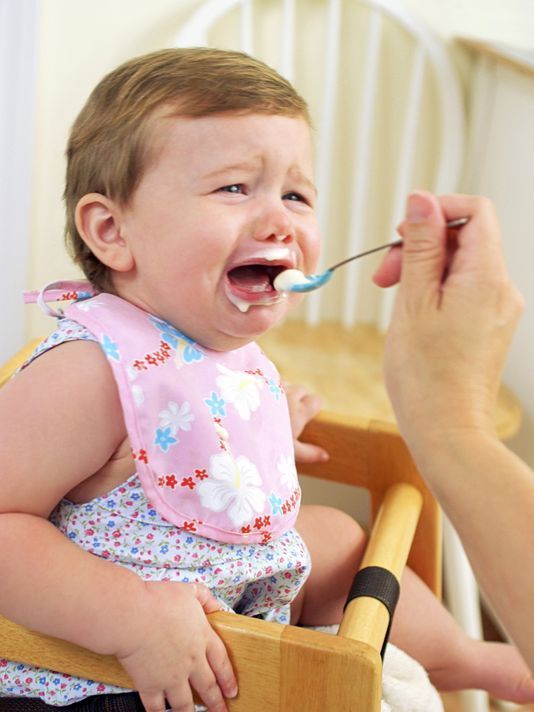
Every formula brand may affect each child differently, so trying a different formula for your baby may be a good solution to solving your babies crying problem. It is important to talk to your own baby’s pediatrician about whether some other formula options can be better for your child.
If you see no change or improvement by switching your baby’s formula, it is unlikely to help for any other brands.
Colic
Colic is also another reason why babies cry after feeding. Essentially, colic means persistent and excessive crying for a baby under 3 months old. More specifically, your baby is doing the following:
- Is crying a lot, for at least three hours a day
- The baby is crying at least three days per week or more
- Is under 3 months old
If all 3 of those boxes are checked, then your baby is likely colic.
Should You Breastfeed Every Time Your Baby Cries?
This is a question that is very popular among moms in regards to their baby and crying. For that reason, we wanted to address this directly because it seems to be a topic that is debated out there.
For that reason, we wanted to address this directly because it seems to be a topic that is debated out there.
In short, no. You do not want to breastfeed your baby every time he or she cries. Contrary to some beliefs out there, some babies cry because of a bloated stomach, gas, or some of the other reasons we talked about already in this article.
Ultimately, the best solution is to let your baby decide when she’s had enough milk. When your baby has had enough milk, it will give you signs to let you know it will be done feeding. Including stopping feeding or turning your head away.
How Do I Comfort a Crying Newborn?
Now that you know that you shouldn’t breastfeed every time your baby cries after feeding, I’m sure you’re also wondering how to comfort your crying newborn. With that being said, there are multiple ways to comfort a crying newborn when he or she cries.
Some of these ways include:
- Offer a pacifier for sucking – this can help your baby relieve stress without crying.

- Try gently rocking your baby – this can calm your baby down and relax them.
- Quietly singing to your baby – like rocking, singing may calm your baby and get them to stop crying. You can also put on a rhythmic song or music to have the same effect.
- Cuddle and hold your baby close – Touching, holding, and cuddling your baby makes your baby feel safe and secure. You can also put your baby in a blanket to get a similar effect.
- Try walking or taking your child out for a walk – this can result in a positive change in your child’s mood.
These are some of the main ways that you can comfort your baby when crying. As mentioned above, breastfeeding is not always the answer when your baby is crying. If your baby is crying and it has had enough feeding, try the things that we’ve listed above and see if it helps and improves your baby’s mood.
Why does My Baby Cry After Feeding – Key TakeawaysIf you’re thinking, “Why does my baby cry after feeding?” hopefully this article is helpful for you. Knowing why your baby cries after feeding is extremely important for the health of your child. Some reasons why your fed baby cries after feeding can include acid reflux, food sensitivity/allergy, gas, formula, or colic.
Knowing why your baby cries after feeding is extremely important for the health of your child. Some reasons why your fed baby cries after feeding can include acid reflux, food sensitivity/allergy, gas, formula, or colic.
You should not breastfeed every time your baby cries. Instead, it’s best to let the baby tell you when it’s had enough flow of milk.
It’s also important to comfort your crying newborn when he/she cries.
Knowing how to answer the question “why does my baby cry after feeding” can help your breastfeeding experience and the health of your baby. Whether it is with bottle feeding, direct breastfed babies, your baby will be better off if you understand these basics.
If you’re looking to get the best high-quality breast pump, you can order our breast pump here. We offer a wide range of pumps with a ton of different insurances. Some insurances we cover include UPMC, Tricare, Aetna, and many others.
Baby Fusses or Cries During Feeding: Causes & Solutions
Is your baby fussy every time you offer the breast? Do they cry, making it hard to breastfeed?
I’ve been there and know how it can be distressing when your baby is irritable while breastfeeding. It can make you question whether you’re doing something wrong and why the experience isn’t turning out how you imagined.
It can make you question whether you’re doing something wrong and why the experience isn’t turning out how you imagined.
To help set your mind at ease and offer you some hope, we’ll share everything we know about what makes a baby upset during breastfeeding.
We’ll help you determine the cause of your baby’s fussiness. We’ll also offer our solutions so your breastfeeding sessions can return to being a peaceful experience you both enjoy.
Causes of Baby Crying During Feeding
Half the battle is finding out why your baby is crying and fussing when they should be enjoying their time at the breast. You want to know your baby is getting enough milk and thriving. But it’s hard to be sure when they always latch on and off, crying in between.
Let’s discuss some possible causes.
1. Baby Isn’t Latching On
If your baby is fussing or crying, getting them to latch on to feed can be challenging. Whether overtired, overstimulated, or just plain hungry, a crying baby is unlikely to latch.
The Solution
Begin breastfeeding while your baby is calm and awake, before they get too hungry. Watch for early hunger cues such as rooting, smacking their lips, sucking their hands, sticking their tongue out, or waking from sleeping. Crying is a late sign of hunger.
Swaddling your baby and holding them close, dimming the lights, or moving somewhere peaceful and quiet might also help.
Another thing you can try is squeezing a few drops of milk onto your breast to entice your baby to latch on. The taste and smell of the milk might stimulate them to feed. Changing position or changing breasts can also work sometimes (1).
2. The Milk Flow Is Too Fast or Too Slow
Paying attention to when your baby starts to cry might shed some light on the reason.
If your baby is fussier in the morning, it could be that your overly full breasts release too much milk too quickly. Your breasts may have become engorged with milk during the night and your baby can’t cope with this forceful let-down.
Your breasts may have become engorged with milk during the night and your baby can’t cope with this forceful let-down.
Conversely, if they are fussier in the evenings, maybe the milk release is too slow and they get frustrated. They become impatient, waiting for the flow of milk that comes with the let-down, and start crying.
The Solution for Fast Milk Flow
A strong release of milk, or overactive let-down, can make your little one choke, gag, or cough when they’re feeding. They might unlatch from the breast because they don’t like or can’t cope with the fast flow. They could also be gulping a lot of air with the milk and getting gassy, which causes more upset.
These are some of the things you can do to counteract this:
- Express before feeding: Pumping some of your milk before feeding, or expressing by hand, can help slow down the flow. After you feel the first let-down pass and you see the flow is slowing, put your baby to your breast.

- Lie back when nursing: Adopting a laid-back feeding position with your baby lying on top of you can slow the flow. You could latch your baby on and then lie back against some cushions or pillows. Milk will flow against gravity and won’t pour down your baby’s throat.
- Burp regularly: When your milk is flowing fast, your baby may gulp lots of air while feeding. A gassy baby is a fussy baby, so burp them regularly, during and after the feed.
- Feed one side at a time: Alternate your breasts at each feed. That way, once the flow slows down on the breast your baby is feeding on, they might stop fussing.
- Take a feeding break: If your flow is too much for your little one to cope with, remove them from the breast for a few seconds. Let the excess milk leak onto a towel, and offer the breast again when it stops. This might make your baby fussier for a while, but it will pay off in the long run.
The Solution for Slow Milk Flow
Your baby is hungry, but your milk is not coming quick enough.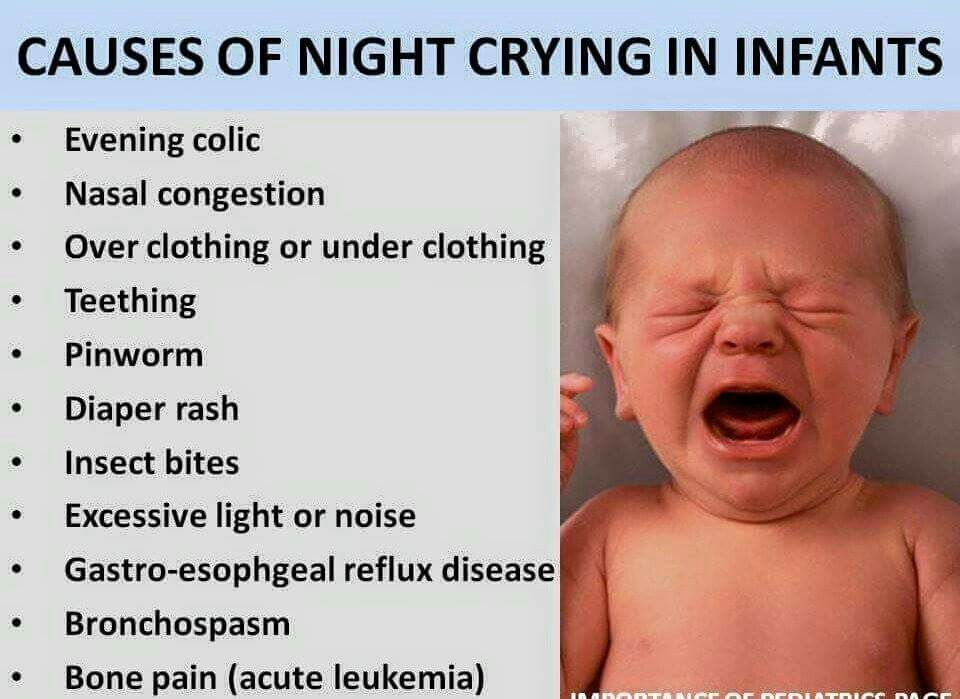 Just as we can get “hangry” when we need food or drink and aren’t getting it, our babies can too!
Just as we can get “hangry” when we need food or drink and aren’t getting it, our babies can too!
Luckily, we have some things you can try to combat a slow flow or delayed let-down:
- Stimulate the flow: Either pumping or hand expressing a little milk before latching can kick-start your let-down reflex. Once you have a steady flow, then you can put your baby to your breast.
- Warm compress: Use a warm towel or compress for a few minutes to stimulate letdown. Place it on your breasts just before each feed.
- Massage: Massaging your breasts before and during a feed can help the milk flow faster.
- Try breast compressions: If you notice your baby is about to start fussing and might unlatch, squeeze your breast. This will give your baby a burst of milk, keeping them actively feeding.
- Get comfortable: Breastfeeding a fussy baby can be frustrating for you as well.
 Try and feed in a relaxing position, away from distractions. It’s a perfect time to just concentrate on your baby.
Try and feed in a relaxing position, away from distractions. It’s a perfect time to just concentrate on your baby. - Make sure your baby gets enough milk: All that fussing and crying might make your little one tired, and they may fall asleep at the breast before they’ve eaten enough. Try and stimulate them to continue feeding by tickling their foot or stroking their cheek. The more your baby feeds, the more milk you will produce.
- Some dos and don’ts: When breastfeeding, avoid smoking and alcohol. Also, try and steer clear of soda and coffee. All these could affect your milk production. Ensure you eat a balanced diet and stay hydrated, too (2).
3. Baby Is Going Through a Growth Spurt
There are times during a baby’s first year of life when they go through growth spurts.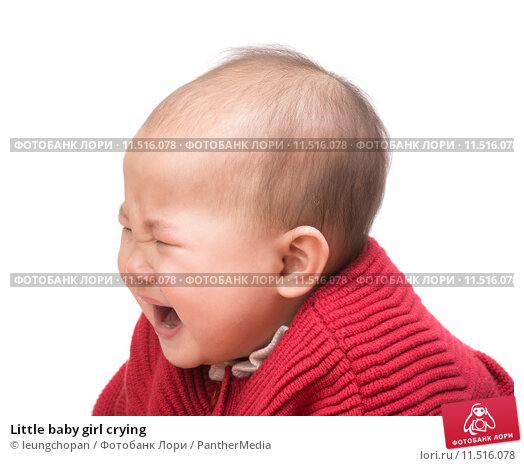 Their weight and length will increase, as will their head circumference.
Their weight and length will increase, as will their head circumference.
Your baby may want to feed more often during a growth spurt and can become fussy. It’s not uncommon for a baby to suddenly feed up to 18 times in 24 hours.
While one does not necessarily lead to the other, it makes sense that a growth spurt and sudden, frequent feeding go hand in hand. Your baby will need more milk to support the growth spurt, and nursing more will naturally boost your supply.
During this time, babies can also become fussier than usual. They might appear unsettled and clingy, and they may not sleep as well as usual.
Growth spurts generally happen several times during the first year. These are the ages when they are likely to occur:
- Two weeks old.
- Three weeks old.
- Six weeks old.
- Three months old.
- Six months old.
Not all babies will follow this timetable; some might have more growth spurts or they may be at different times.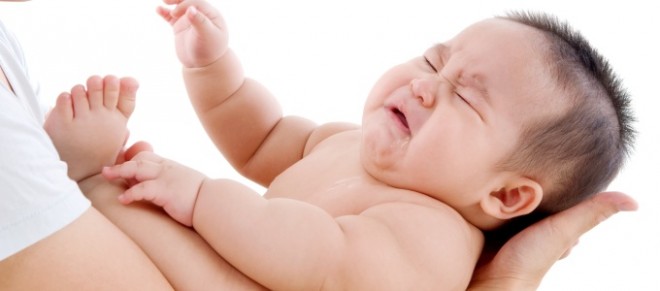 For some babies, there might be no change in their behavior when they have a growth spurt.
For some babies, there might be no change in their behavior when they have a growth spurt.
The Solution
During this time, follow your baby’s lead. Respond to their needs, whether it’s more feeds, extra cuddles, or just quiet time and a nap.
Your baby might get fussy if you aren’t producing as much milk as they want. It can take a day or so for your supply to catch up with the demand. The more you let your baby feed, the more milk your breasts will produce.
Your baby may seem hungry after normal feeding time, so don’t be afraid to nurse again. Keep yourself feeling good during this time by staying hydrated and eating balanced meals. Remember, you are not Superwoman; let family and friends help with chores and shopping while you spend time with your baby.
4. Baby Is Going Through a Developmental Stage
Your baby is constantly developing mentally and learning new skills as they go along. It can be a bit overwhelming and confusing for them, and there might be weeks when they are fussier than usual.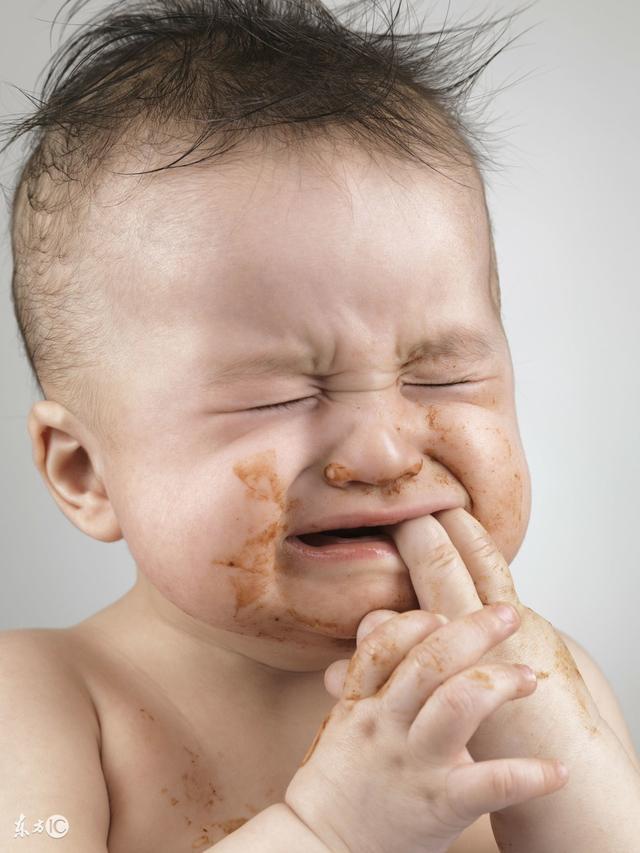 Sometimes called the “Wonder Weeks,” it can explain mood changes in your baby (3).
Sometimes called the “Wonder Weeks,” it can explain mood changes in your baby (3).
You might find that during these periods, your baby becomes more curious and distracted while feeding. They might want to feed more or, conversely, not stay latched on long enough for a good feed. They can be cranky and fussy and cry a lot when you’re trying to breastfeed.
The good news is that these periods generally only last a few days before your baby returns to normal behavioral patterns.
Not all babies will fit into the pattern of wonder weeks and develop at different times.
The Solution
Feed your baby in a quiet room where there are likely to be fewer distractions. There’s nothing worse than having a situation where your little one latches on, then hears their dad or sees the dog and stops feeding (or worse yet, turns their head with your nipple still in their mouth!).
Trying to get your baby to pay attention can make them fussier and be a constant battle.
You might also find that your baby is fussier and wants to feed more often during these periods. Again, take your cue from them, and give them the extra time and attention they need.
5. Baby Needs to Burp
Babies often fuss, cry, or pull away from the breast when they need to burp. A fast flow of milk can exacerbate this. They can also swallow more air when they’re fussy or gulp down milk faster than usual if they’re over-hungry.
The Solution
Breastfed babies tend not to need burping as often as bottle-fed ones. However, there are times when gas can make them uncomfortable and they need to get it out.
If your baby is fussing, stop the feed and try and burp them. If you let them carry on feeding while they’re crying, then they can take in more air and make the problem worse. Eventually, it can end up with them spitting up.
It’s a good idea to burp your little one mid-feed, even if they don’t appear to be in too much discomfort. Try to do it when switching breasts or when your baby latches off the nipple.
Other Reasons for Crying During Breastfeeding
We’ve looked at some of the main reasons your baby might cry while breastfeeding. There are a few other things that can cause this, including:
- Baby prefers one side: Your milk supply might be better on one breast than the other. This may be apparent if your baby only fusses when fed on one side.
- Teething: This can be a painful and uncomfortable time for your baby, and they might fuss more when feeding. You might first realize it’s happening when they clamp down on your nipple and you feel the teeth through the gums. I’m all too familiar with that pain! But trust me, your baby isn’t trying to hurt you; they just want to relieve their pain (4).
- Baby has eaten enough: If your little one starts fussing toward the end of a feed, this might be a sign they’ve had enough. Try offering the breast again a few times. If they don’t want it, move on.
 If you have ruled out any other causes for their crying, their little tummy might be full.
If you have ruled out any other causes for their crying, their little tummy might be full. - Baby wants to be pacified: Your little one might be full but still wants to suckle. However, it can be frustrating for them when milk is still flowing. This could be an excellent time to offer a pacifier for them to suckle.
- Thrush: This fungal infection can affect your nipples or a baby’s mouth. If your baby has oral thrush, feeding will be uncomfortable, and they can get fussy. If you suspect this, contact your health care provider (5).
- Baby has a cold: Trying to feed and breathe through a stuffy nose simultaneously can be challenging for a little one. They will become fussy and break away from the breast a lot. Use a nasal aspirator to try to clear their nose, or ask your pediatrician for advice.
- Food sensitivity or allergy: While you might enjoy eating spicy food for dinner, your baby may not.
 The flavor of the food you eat comes through in your milk, and your little one might not always like the taste or the smell. You might notice they are fussier when you have consumed certain foods they don’t like or are allergic to (6).
The flavor of the food you eat comes through in your milk, and your little one might not always like the taste or the smell. You might notice they are fussier when you have consumed certain foods they don’t like or are allergic to (6). - Reflux: Although it’s not very common in breastfed babies, sometimes food comes back up from a baby’s stomach. This can make them cry and feel uncomfortable when feeding (7). Speak with your baby’s doctor if you suspect this is causing your baby to be fussy or cry during breastfeeding.
Feedback: Was This Article Helpful?
Thank You For Your Feedback!
Thank You For Your Feedback!
What Did You Like?
What Went Wrong?
why the baby cries while feeding
While the baby is quite a baby, crying is the only way of his communication with his mother and the outside world. If the baby is restless during feeding, he will let you know that he is uncomfortable. We will analyze what can cause baby crying in such a situation.
If the baby is restless during feeding, he will let you know that he is uncomfortable. We will analyze what can cause baby crying in such a situation.
Dry milk drink "Baby milk" Valio Baby 3 NutriValio for feeding children over 12 months Read more
As a rule, the causes of a baby’s tears at the breast or bottle with a mixture are physiological, and there may be several of them.
Abdominal pain
Most likely, the child is worried about colic (they can start from 2-4 weeks of age and usually end by 3 months). Unpleasant sensations are associated with the fact that the infant has an insufficiently developed intestinal microflora and it is difficult for the digestive system to cope with the task assigned to it. Children's crying during colic is accompanied by arching the back and pulling the legs to the stomach - the pain from the formation of gases in the intestines is always acute. To alleviate the condition of the crumbs, it is useful for a nursing mother to drink teas with fennel, cumin or anise. If your baby is formula-fed, choose formula carefully. Valio Baby baby food is as close as possible to the composition of breast milk and contains the GOS prebiotic, which is necessary for the health of the child's digestive system. The cause of colic is also the wrong feeding technique and, as a result, the capture of excess air by the baby.
To alleviate the condition of the crumbs, it is useful for a nursing mother to drink teas with fennel, cumin or anise. If your baby is formula-fed, choose formula carefully. Valio Baby baby food is as close as possible to the composition of breast milk and contains the GOS prebiotic, which is necessary for the health of the child's digestive system. The cause of colic is also the wrong feeding technique and, as a result, the capture of excess air by the baby.
#PROMO_BLOCK#
Earache
Children under one year old often suffer from otitis media, this is due to the anatomical features of the structure of the nasopharynx in babies in the first months of life. A baby may cry during feeding because swallowing causes a sharp pain in his ears. Very carefully touch the tragus of the baby's auricles - if he cries, then you need to see a doctor.
Headache
It is no secret that many neurological disorders are accompanied by headaches. It becomes especially strong when swallowing. If the baby is constantly crying during feeding, be sure to make an appointment with a pediatric neurologist.
It becomes especially strong when swallowing. If the baby is constantly crying during feeding, be sure to make an appointment with a pediatric neurologist.
Inflammation of the oral mucosa
Crying during feeding may signal that the baby is experiencing discomfort in the mouth or throat. Its cause is most often thrush or pharyngitis. These diseases require treatment under the supervision of a pediatrician.
Lack or excess of breast milk
The lactation of a nursing woman is affected by a considerable number of factors - the psychological state, fatigue, stress, malnutrition and its lack, improper organization of breastfeeding. The baby may cry because he does not have enough milk. Whether the food shortage is really critical is easy to check using the wet diaper method. By the way, the crying of a baby may also indicate that there is too much milk - the stream is too strong and the baby simply chokes.
Unusual taste of breast milk
If a mother ate, for example, something spicy on the eve of feeding, this will certainly affect the taste of milk.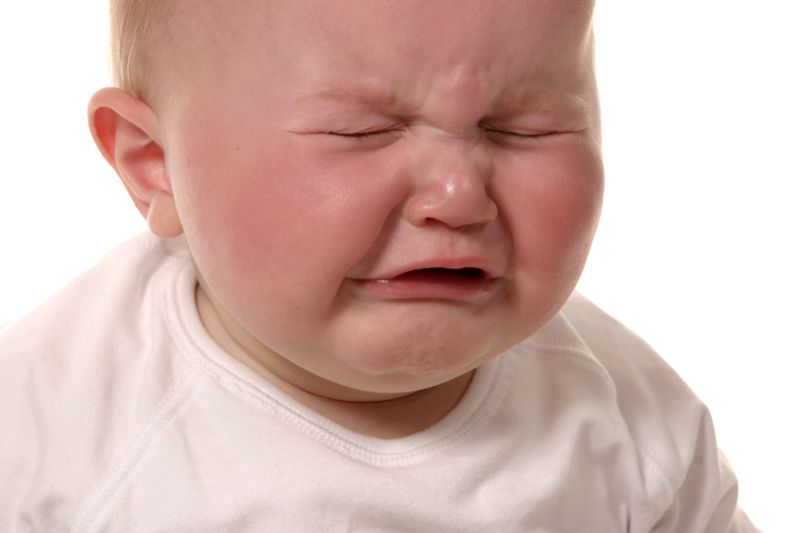 The baby, of course, will cry. This cause of children's "grief" is the most easily eliminated - be attentive to your menu and do not upset your beloved baby.
The baby, of course, will cry. This cause of children's "grief" is the most easily eliminated - be attentive to your menu and do not upset your beloved baby.
In addition to the reasons described, the reason for children's tears during feeding can be erupting teeth and inflammation of the gums, as well as nasal congestion with allergies and SARS. Be attentive to your baby. If all is well, the baby should not cry while feeding.
3.4 35
Power supplyShare:
Author: Reetta Tikanmäki
Palm oil in baby food
Infant milk formulas are made from cow's milk. However, in terms of fat composition, it differs significantly from that of the mother.
However, in terms of fat composition, it differs significantly from that of the mother.
Read
Author: Ivargizova Oksana
How to choose milk formula for a baby
Breast milk is the best food for a newborn baby. It contains all the necessary nutritional components that fully meet the needs of the child and are necessary for his healthy and harmonious development.
Read
Show all
Why does the baby cry during breastfeeding
Ekaterina Andreevna Yakovleva
pediatrician, consultant on breastfeeding
Why does baby cry while breastfeeding? The answer may lie on the surface and depend on the situation. Some mothers themselves begin to put forward theories that are often incorrect - “I don’t have milk”, “I ate something wrong”, “The milk became tasteless and bitter”, “I shouldn’t have bought silicone pads” . .. Consider the most frequent causes of crying at the breast and options for helping the baby together with Ekaterina Andreevna Yakovleva, pediatrician, breastfeeding consultant and mother of two babies. She knows about the tears of babies not only from professional, but also from maternal experience.
.. Consider the most frequent causes of crying at the breast and options for helping the baby together with Ekaterina Andreevna Yakovleva, pediatrician, breastfeeding consultant and mother of two babies. She knows about the tears of babies not only from professional, but also from maternal experience.
WHY A CHILD CRYS DURING FOOD
— Ekaterina Andreevna, is crying during feeding dangerous?
— Crying during feeding is a normal way for a baby to communicate with the outside world. So he calls his mother, shows that he wants to eat or something bothers him. The only thing that crying can affect is that the baby will come off the chest and take in air. This will lead to more abundant regurgitation, increased pain in the tummy.
Table. Newborn cries during feeding - 9 reasons0091
— Can a change in priorities of a child affect his behavior at the breast?
- Up to three months, babies have one priority - they need to either eat and sleep or change a wet diaper.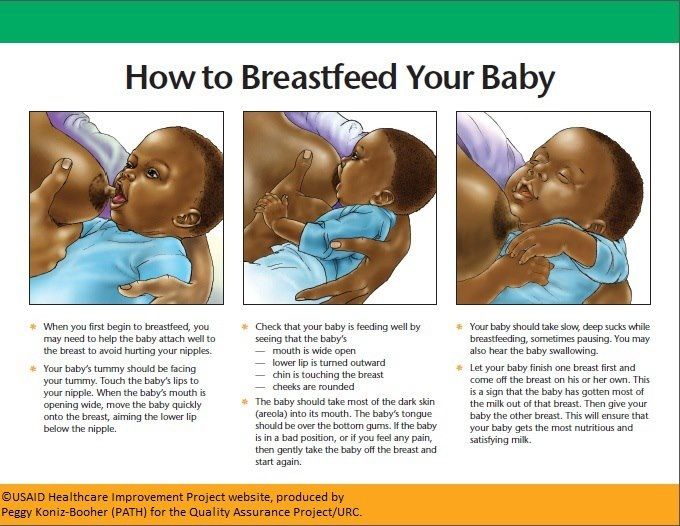 After the children become more active, they are already interested in the world around them. Therefore, when feeding in public places, and also when the mother combines the process with talking on the phone or watching TV, the child can be distracted: suck - turn away - suck, ask for different breasts in turn, indulge.
After the children become more active, they are already interested in the world around them. Therefore, when feeding in public places, and also when the mother combines the process with talking on the phone or watching TV, the child can be distracted: suck - turn away - suck, ask for different breasts in turn, indulge.
After three or four months, the baby should not be on the breast very often, but mothers find it difficult to readjust and continue to breastfeed constantly to soothe him. But in fact, the child’s needs are already different - he wants to be vilified on the handles, paid attention to him, played with him, showed him toys.
- Let's discuss misattachment in more detail. What can a mother do wrong if the child does not eat well and cries?
- A very common symptom of improper attachment or refusal of the breast is trouble-free feeding only in sleep. When the child sleeps, he eats calmly, and when he is awake, he begins to twist at the chest, cry.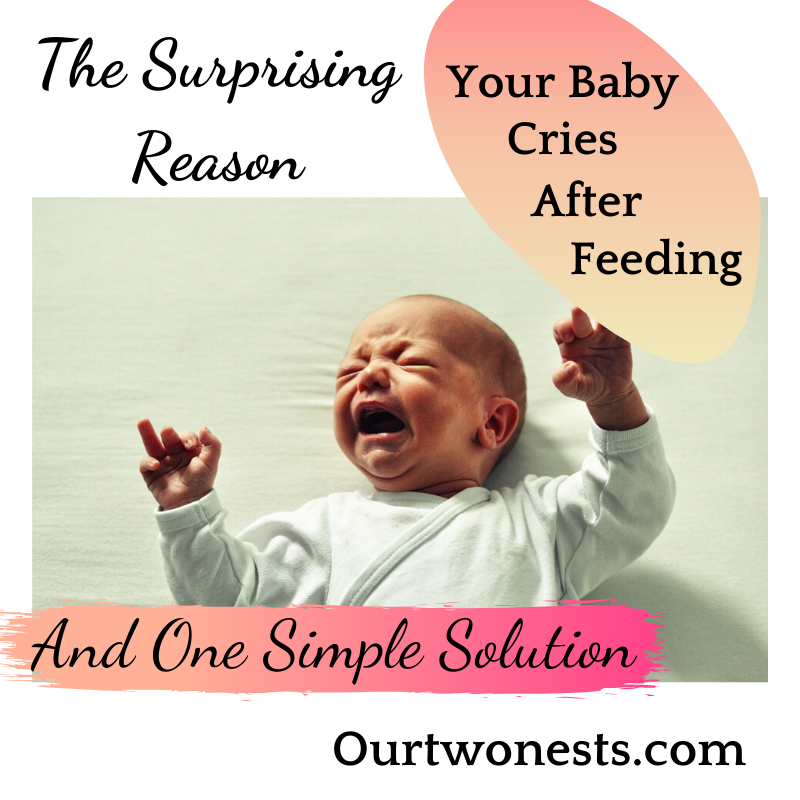 Mom can get tired of this, and in order to calm and feed the baby, during the day she gives him a bottle. In such a situation, it makes sense to talk about breastfeeding and work to restore normal feeding.
Mom can get tired of this, and in order to calm and feed the baby, during the day she gives him a bottle. In such a situation, it makes sense to talk about breastfeeding and work to restore normal feeding.
Problems may arise from awkward or repetitive posture during feeding. By trial and error, the mother should choose the position that will be most convenient for her and the child. However, if a baby is fed only lying down from birth, at an older age he may refuse to eat in his arms, break out and cry.
A CHILD CRYING WHEN FEEDING - HOW TO HELP
- Ekaterina Andreevna, everything is very individual for small children. How to understand why a child eats and cries?
— If the baby is crying during feeding, the mother should gradually study the possible reasons for such behavior and:
- Eliminate the reasons related to the child's well-being, which she can deal with herself.
- Practice breastfeeding techniques.
- Seek medical attention if all else fails - child continues to cry and has additional questionable symptoms.
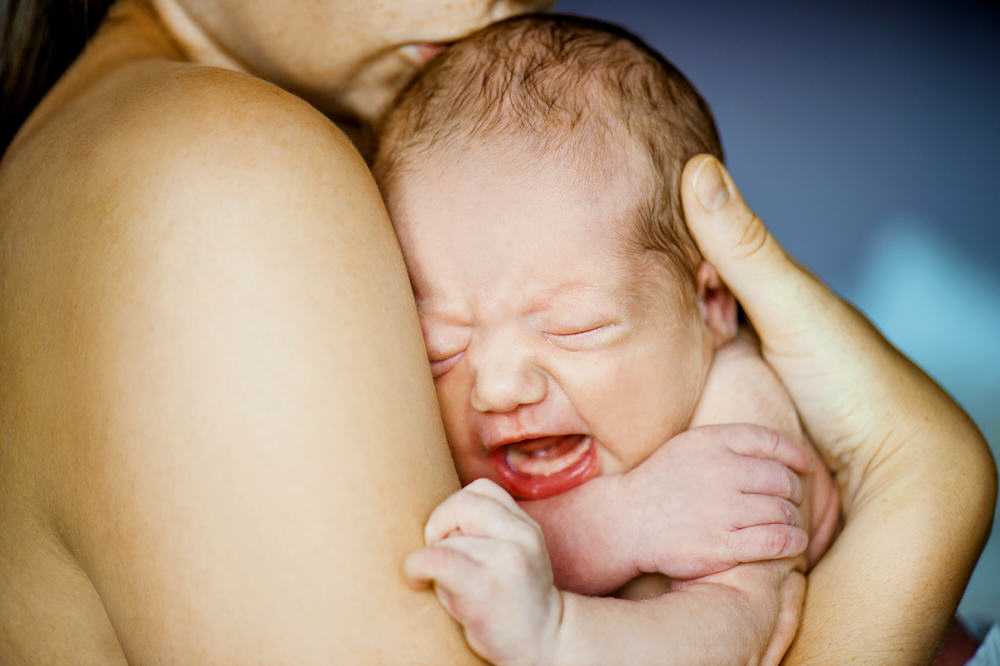
Triad of symptoms that are always alarming
You should also consult a doctor if, during feeding, the child wriggles and cries from constant acute pain, cannot calm down, vomiting, blood and mucus in the stool, rashes in the mouth, stuffy nose are observed. Fever is an acute condition that is not associated with constant (for example, for a month) baby crying during feeding.
— What should I do if my baby refuses to breastfeed?
— The main thing for a mother is to remain calm and adequate. For a breastfed baby, one break can last an hour, and another five to six hours if the baby has slept long and well. Taking long breaks during the day, the child will still finish his daily allowance in order to develop normally. For example, if he has not eaten for six hours during the daytime, he will breastfeed more often at night. Therefore, in feeding children in the first half of life during the day, it is better not to take breaks for more than 3-3.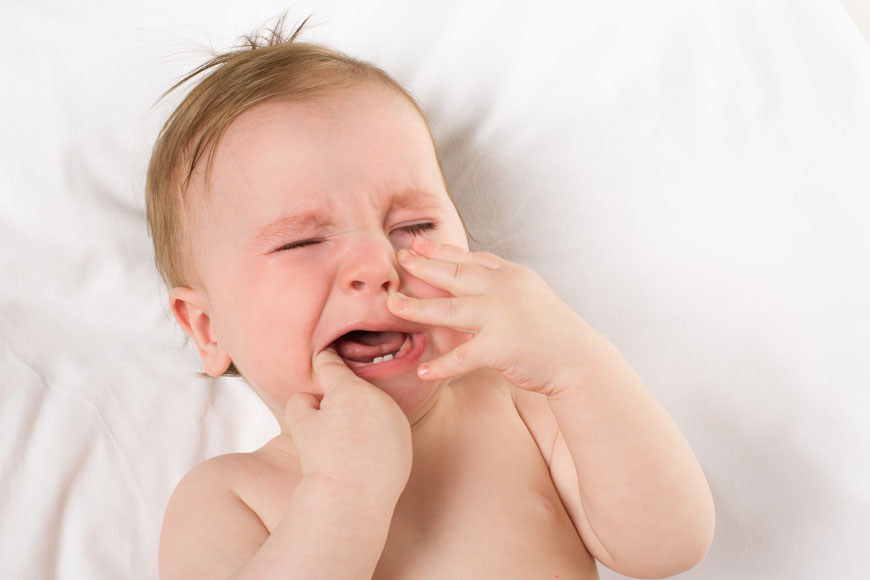 5 hours. With the introduction of complementary foods, the intervals may be slightly longer.
5 hours. With the introduction of complementary foods, the intervals may be slightly longer.
Night breaks are individual and depend only on the child - some children are born with a 6-8 hour interval, and some sleep at night for eight to twelve hours or eat every hour.
Read also
- About the reasons why a child refuses breast milk and whether it is necessary to switch to mixed or artificial feeding in such cases.
— Should I stop feeding if the baby is naughty?
- Depends on age. Mom should feel what exactly the child needs at this moment. If a newborn cries and refuses to breastfeed, you can calm him down, vilify him with a column, shake him, and then attach him to the breast again. If, having calmed down, the child turns away from the chest, then he has eaten.
An older child is distracted from the breast, becoming interested in something else. Do not force feed him. We must try to remove all irritants - feed in isolation in a separate room, not be distracted by gadgets, sounds, or give the child the opportunity to satisfy his interests, and then offer the breast again.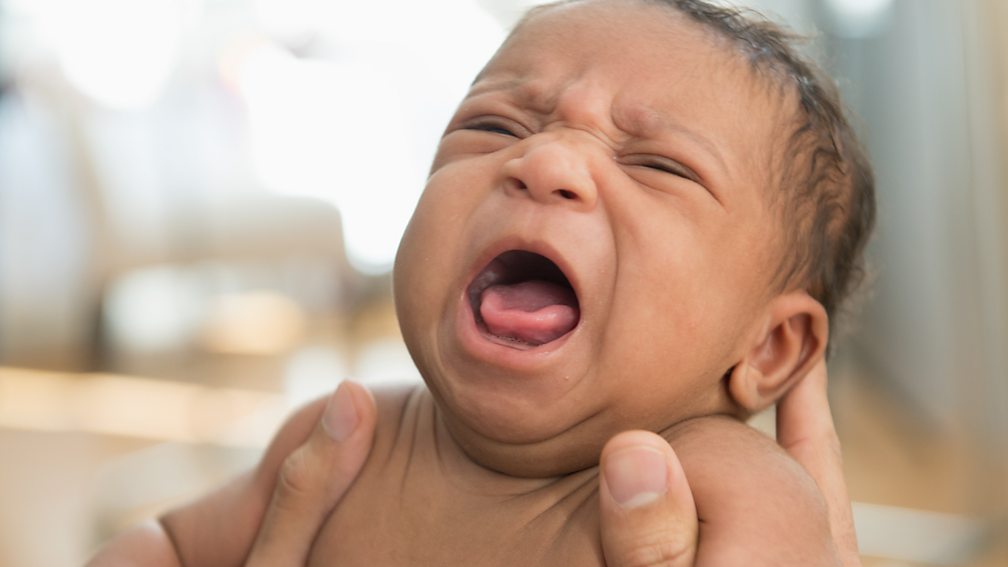
— What else can help calm the baby?
- Since most causes of crying are not related to medical problems, medication is not needed. It is necessary to relax, set up the baby, pump him, try to competently organize breastfeeding - apply correctly, do not give a dummy, nipple, supplement from a cup or syringe without a needle. As a rule, this is how most feeding problems go away.
— In what situations can a breast be replaced with a bottle?
— It is not worth replacing breastfeeding with formula feeding without acute vital signs. When a baby is not accepting the breast well, it is worth removing all bottles, continuing to supplement with “non-sucking” items, and contacting a breastfeeding specialist to try to establish attachment and breastfeeding. This is done by a lot of people.
- Does changing the feeding regimen help to get rid of crying?
- Rather, these are unrelated things. It is not worth forcibly adjusting the feeding regimen, you need to listen to the child - in the first three months, the children constantly hang on their chest, after they begin to form a regimen and the intervals between meals increase.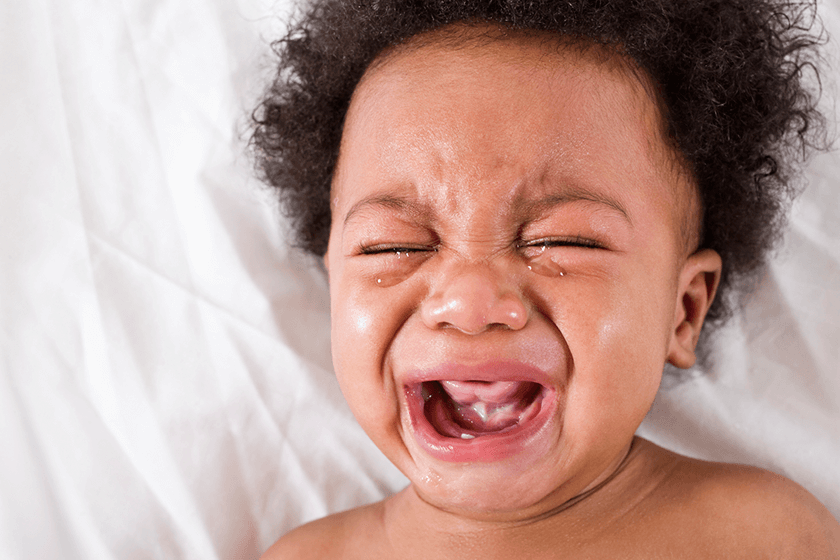 It is important to feel the needs of the child, because not only hunger, but also other things can disturb him, and if he constantly poke his chest, he will not be very pleased.
It is important to feel the needs of the child, because not only hunger, but also other things can disturb him, and if he constantly poke his chest, he will not be very pleased.
Table. Errors during breastfeeding
The baby cries during breastfeeding for many reasons. It can be improper attachment to the breast, "tangled nipples", inflammatory diseases of the oral cavity, runny nose, colic, teething, lactase deficiency, or a very nervous state of the mother. It is possible to understand what the problem is only by eliminating the organic and psychological causes of crying. With prolonged ongoing anxiety, the child should be shown to a specialist.
* Breast milk is the best food for babies. WHO recommends exclusive breastfeeding for the first 6 months of a child's life and continued breastfeeding after complementary foods are introduced until the age of 2 years. Before introducing new products into the baby's diet, you should consult with a specialist.

